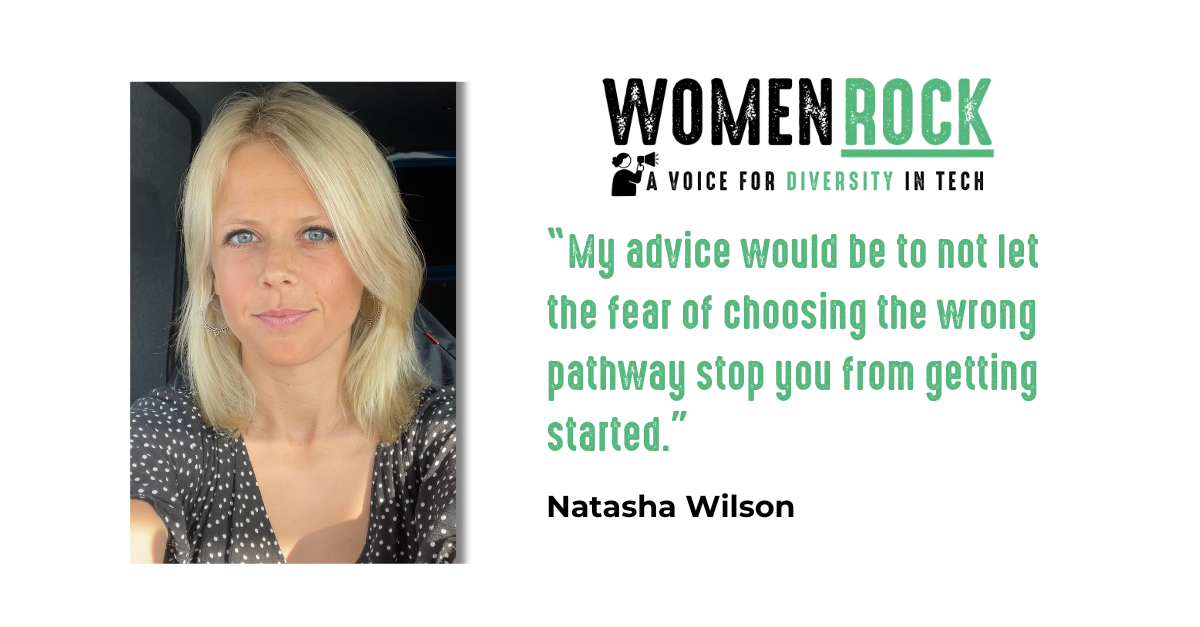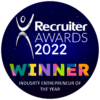
“My advice would be to not let the fear of choosing the wrong pathway stop you from getting started.”
At 24, Natasha went from no coding experience to now a Senior iOS Engineer at Surfline, proving that you can truly reshape your career with persistence, passion, and a bit of self-belief. From teaching herself to code and building apps in her spare time to becoming a mentor for over 200 women and non-binary individuals through Code First Girls, Natasha’s journey is a powerful reminder that the tech world is full of opportunities — and anyone, no matter their starting point, can succeed.
Natasha’s story isn’t just about coding; it’s about embracing challenges, pushing boundaries, and stepping outside your comfort zone — because as she puts it, “Outside your comfort zone is where the magic happens.”
If you’ve ever wondered how to break into tech, or whether it’s too late to get started, Natasha’s advice is clear: just begin. It’s the first step that counts.
Hi Natasha, thank you for taking the time to speak with us. Firstly, please can you start by talking me through your position at Surfline?
Hey! My job is Senior iOS Engineer working for Surfline. Surfline is an app for surfers, with wave forecasting, real-time surf reports, and live video streaming from surf spots all round the world. I’m the iOS Lead for a squad which handles core parts of the user experience including the home screen and forecast graphs. I work with product managers, other engineers, and designers to improve existing features and develop new ones. My week is usually split between coding in Swift, reviewing code, and planning upcoming projects.
You had no coding experience until you turned 24. Please tell me about your story so far. How did you get into the world of tech?
While travelling in New Zealand, I worked as an office temp for a few months to save up money. Some people in my team were using SQL to analyse education data, and after chatting with them about it, I thought that programming might be something I’d enjoy learning. So I set myself a goal: to code for at least 10 minutes a day.
Over the course of a year, while I didn’t manage to code every single day, I found that whenever I stuck to the habit, those 10 minutes often stretched into much longer sessions. The biggest challenge was just getting started! I began with free online resources like Codecademy and gradually transitioned to working on personal projects as my confidence grew. After about one year, I got my first tech role in a data team.
What personal projects sparked your move from Data to Mobile Development, and what do you enjoy working on outside of work?
Yes, for the first years of my tech career, I worked as a data analytics engineer. But outside of work, I started learning Swift because I wanted to develop my own apps, and I quickly got hooked on iOS development!
I currently have two apps published on the Appstore, along with many unfinished projects and more ideas for future apps than I can count. I enjoy working on them whenever I have some free time.
You are now an instructor at Code Girls First – Amazing! What is Code Girls First for those that don’t know it, and what is your role there?
Code First Girls is an organisation that offers free online courses for women and non-binary people interested in pursuing a career in tech. I’m an instructor for two courses – Python & Apps and Data & SQL. I usually teach one evening per week and give technical support to students on Slack between sessions, helping them fix bugs and work through any issues that come up.
I love teaching for Code First Girls; it gives me a huge amount of fulfilment. It has been inspiring to see so many women who are excited to learn to code, especially since I’ve often been the only woman in teams throughout my career. So far, I’ve taught around 200 women across different courses. It gives me hope that diversity in the tech industry is heading in the right direction.
Many people want to break into tech and know about initiatives like Code First Girls but aren’t sure where to start—whether to learn Python, JavaScript, SQL, or something else. What advice would you give on choosing the right language and first steps?”
My advice would be to not let the fear of choosing the wrong pathway stop you from getting started. Unless you know the specific role you want to get into, just pick one of the most popular programming languages and stick to it for a while. Follow online courses until you feel confident to become more independent and start your own projects. Don’t worry about choosing the “wrong” language – you are not locked into your decision. You can always pivot later if you find another area of tech that interests you more. The fundamentals of programming are similar across languages and the experience you gain will be valuable no matter where you start.
Your role at Surfline is remote, and you live in a more isolated part of the UK. How has that experience been for you, and why do you think remote opportunities are so important?
For me, remote working means being able to live somewhere where outdoor activities are easily accessible. Within minutes, I can be surfing at my local beach, running along an estuary, or walking on the coast path. Being able to get outdoors every workday has a huge positive impact on my mental health, something I struggled with while living in a city.
In general I believe remote working is a way that companies can support diversity and inclusion. There are many reasons why people may be unwilling or unable to relocate for a job or to commute to an office every day such as childcare or medical issues. By offering remote work, a company can attract a wider set of people for roles.
We spoke about having great role models and the significance of increasing the representation of women in senior leadership. Who is/are your greatest female role model/s?
Throughout my career, I’ve noticed the lack of technical female role models at work. I’ve never worked with anyone more senior than me who wasn’t male. I do believe it’s important to see people from diverse backgrounds in more senior roles, as it helps to reduce unconscious bias and imposter syndrome.
That said, I was lucky to find incredible female role models early in my career in non-tech management roles, who continue to inspire me. I’ve also found inspiring role models through online communities and my work teaching for Code First Girls.
“You live by the saying, ‘Outside your comfort zone is where the magic happens.’ What does this mean to you?”
A manager introduced me to this saying early in my career, and it’s a phrase I find myself returning to time and time again. I’ve faced imposter syndrome, felt out of my depth, and struggled with self-doubt at various points in my career. Reminding myself of this saying helps me realise that feeling out of my depth is actually a sign that I’m gaining new experience and growing. If I only stick to what I already do well, I’m not progressing. So I try to embrace discomfort and seek out situations where I feel challenged. Sometimes easier said than done!
Interviewed by Bella Snell






